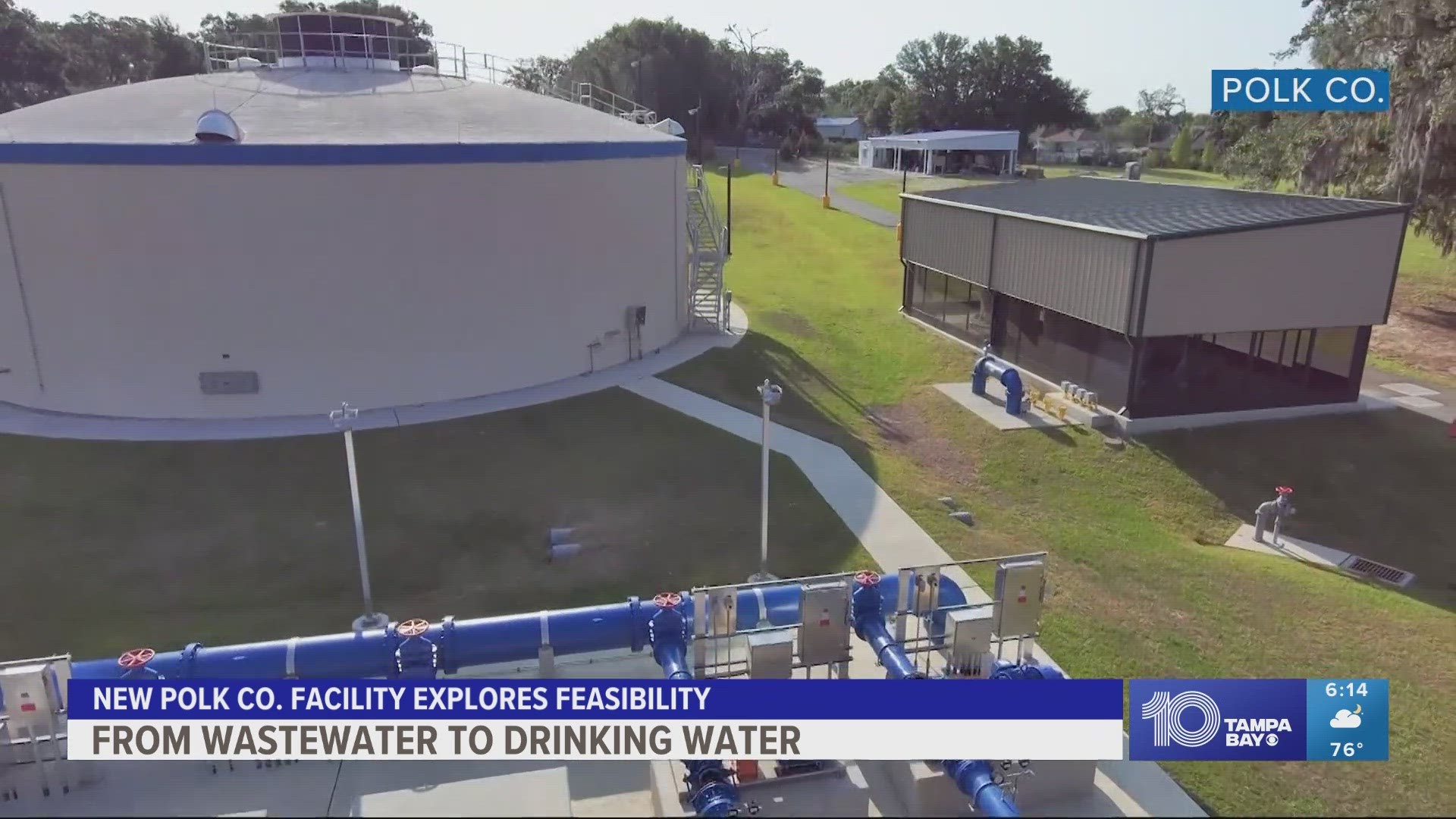LAKELAND, Fla. — From wastewater to drinking water, it doesn't sound appetizing, but it could be the key to securing the vital resource for booming populations across Florida.
At a brand new, $2.5 million facility in Lakeland, Polk County is testing the feasibility of the process as part of its pilot “direct potable reuse” program.
"It's important that we have sustainable water supplies for the future, not only the growth, but for existing residents as well,” said Utilities Director Tamara Richardson.
Polk County is one of the fastest growing counties in the nation and soon the county will be limited on the amount of drinking water they can pump, no matter how big the population grows. Its inland geography also poses potential speedbumps in finding other sources of water, while the cost of pumping from elsewhere is another factor.
"Being in the middle of the state, there are simply not a lot of opportunities available to us,” Richardson added.
At the new facility on Cherry Hill, reclaimed water from the nearby wastewater treatment facility will go through an additional six-step treatment process: Enhanced coagulation, ozone, biologically activated carbon filtration, ultrafiltration, granular activated carbon filtration and finally, ultraviolet disinfection.
“We're treating not only for primary and secondary [federal and state] drinking water standards, but this facility is also designed to remove any unregulated contaminants,” Richardson explained.
This right now is just a study, the water will not be put in the Polk County drinking supply but sent back to the wastewater facility to be used in irrigation. The goal is to demonstrate the process can be used to produce drinking water that exceeds federal and state standards, while also being cost-effective.
Though for some, simply the concept is off-putting, even controversial as we’ve seen in Tampa. Richardson says while new to Florida, the science isn’t that new at all.
“The water that you drink that comes from the ground at one time was wastewater and soaked through a natural cycle," she said. "This is the same science, same system. It’s just speeding up the natural cycle."
In the end, she hopes the pilot will effectively show the public and county leaders, who ultimately have the final say on whether treated wastewater will be used to supplement the dwindling water supply, the importance of it.
“This is our responsibility to find something that's sustainable and cost-effective.”
If all goes accordingly, the goal would be to have a full-fledged facility in Polk County within the next five to seven years. The county is urging people to tour the facility as they conduct the study over the next year.

